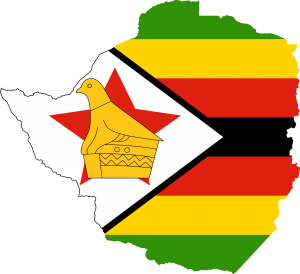A suspected typhoid outbreak is feared to have hit Harare amid reports that one person has died so far, while nine others have been hospitalised. Thirty more people have been treated and discharged.

A 13-year-old girl died on Christmas Day in Mbare, Harare, following the suspected typhoid outbreak.
Harare City Council yesterday said apart from 40 recorded cases of those who presented themselves for treatment of typhoid symptoms, more were receiving treatment as a precautionary measure.
Council deployed heavily in Mbare yesterday to educate residents on the dangers of typhoid. The girl, Ivy Makwara, died at Beatrice Infectious Diseases Hospitals on Sunday.
She was initially admitted at Harare Central Hospital from where she was transferred to Beatrice Infectious Diseases Hospitals where she died on admission. Typhoid is an infection caused by the bacteria Salmonella typhimurium.
The bacterium lives in the intestines and bloodstream of humans. It is spread between individuals by direct contact with the faeces of an infected person.
No animals carry this disease, so transmission is always human to human. If untreated, around 1 in 4 cases of typhoid end in death. If treatment is given, less than 4 in 100 cases are fatal.
Typhoid is diagnosed by detecting the presence of S. typhi via blood, stool, urine, or bone marrow sample. Symptoms normally begin 6 to 30 days after exposure to the bacteria. The two major symptoms of typhoid are fever and rash. Typhoid fever is particularly high, gradually increasing over several days up to 104 degrees Fahrenheit.
The rash, which does not affect every patient, consists of rose-coloured spots, particularly on the neck and abdomen. Other symptoms can include weakness, abdominal pain, constipation, and headaches; rarely, symptoms might include confusion, diarrhoea, and vomiting (but not normally severe).
In serious, untreated cases, the bowel can become perforated. This Typhoid kills one, nine hospitalised can lead to peritonitis (an infection of the tissue that lines the inside of the abdomen), which can be very serious indeed.5
“Harare City Council is attending to suspected typhoid cases in Mbare following the death of a 13-year-old girl,” said council spokesperson Mr Michael Chideme yesterday.
“She had been unwell for some time. Her siblings were also sick with similar symptoms.”
Mr Chideme said further investigations revealed that about 30 more people had similar symptoms and they were treated.
“On further investigations, about 30 people on 8th and 9th Street in Mbare were then treated for suspected typhoid. At the moment, nine people from the area are admitted in hospital and several others are receiving treatment as a precautionary measure.
“The city health department has deployed heavily in Mbare to mobilise and educate residents against behaviour that may lead to typhoid and other communicable diseases.”
Mr Chideme said council provisionally singled out a borehole in the area as the source of the problem. He encouraged people exhibiting suspected typhoid symptoms to quickly seek medical attention.
He said people should wash hands before and after eating food and after visiting the toilet.
“Residents are urged to consume and buy food from licensed and hygienic places,” he said. “Wash all fruits and to pre-treat with aqua tablets all water for domestic purposes.”
The symptoms of typhoid are fever, headache, general body weakness and abdominal discomfort with or without diarrhoea.
Ivy’s brother, Lincoln Makwara (21) is still admitted at Beatrice Infectious Diseases Hospital with similar symptoms. The two’s brother Mr Bernard Chihota yesterday confirmed Ivy died from typhoid.
“Ivy has since been buried today (yesterday) at Granville Cemetery, while Lincoln is still admitted and receiving treatment at Beatrice Infectious Diseases Hospital,” he said.
Mr Chihota said they were saddened by Ivy’s death which came when she was due to proceed to Form One next month at Mandedza Secondary School in Dema after obtaining four units at Grade 7.
In October, Health and Child Care Minister Dr David Parirenyatwa issued a cholera and typhoid alert. He cited erratic water supplies in Harare and other cities, saying this posed a serious danger of an outbreak of water-borne diseases.
The National Microbiology Reference Laboratory has also confirmed three typhoid cases in Mutare and Masvingo. Harare City Council recently introduced a five-day water rationing schedule, forcing residents to turn to the bush, while some are digging shallow wells for water.
According to the Harare’s rationing schedule in October, middle and low-density suburbs were enduring up to five days a week without water. Supplies to Chitungwiza had also been reduced from 27 to 15 litres a day.
According to the council, rationing of water was subject to review this month. Water rationing was necessitated by reduced water levels at Lake Chivero and Harava and Seke dams, but the situation is expected to improve following some rains that have been hitting Harare in recent days.

